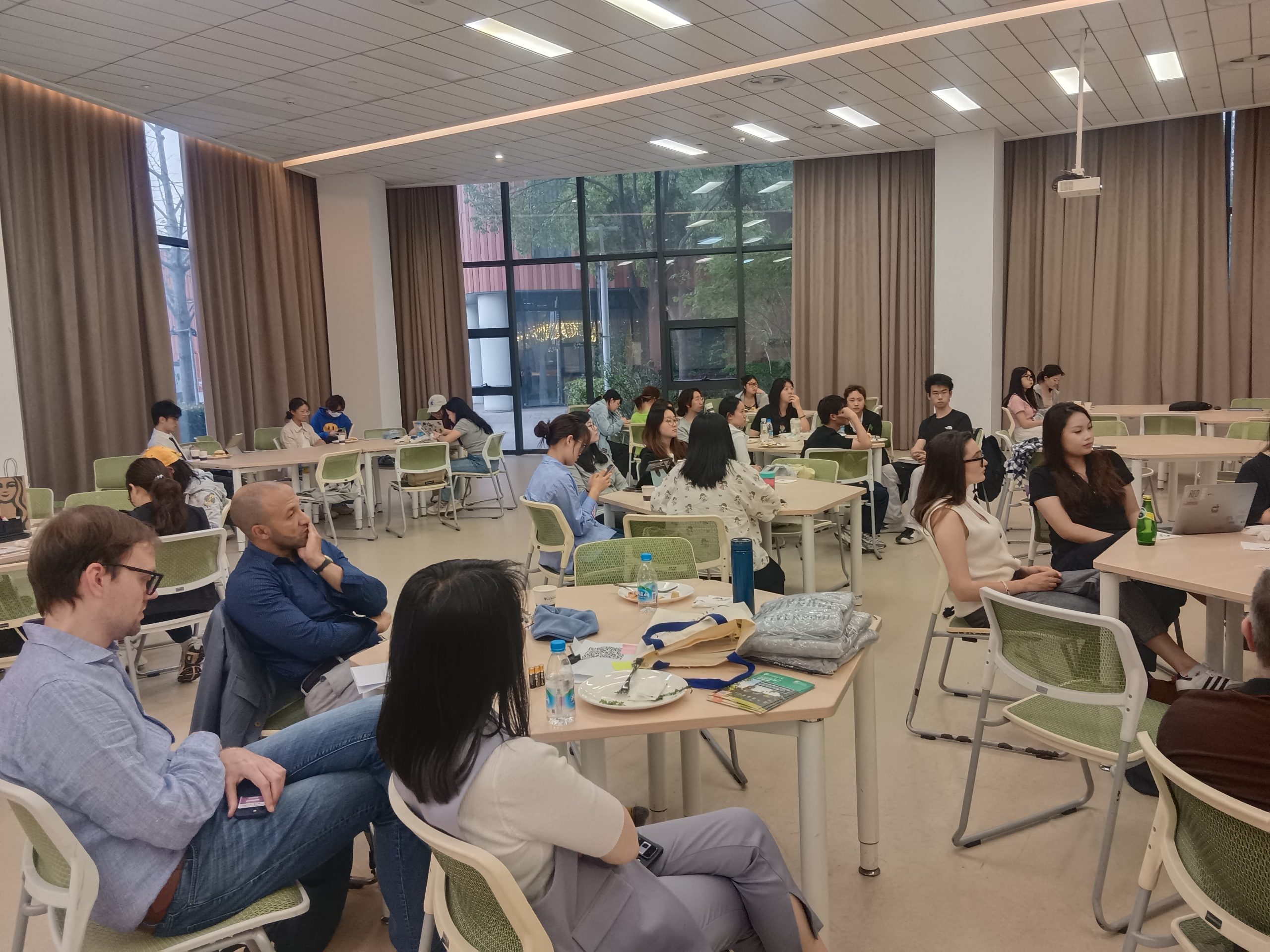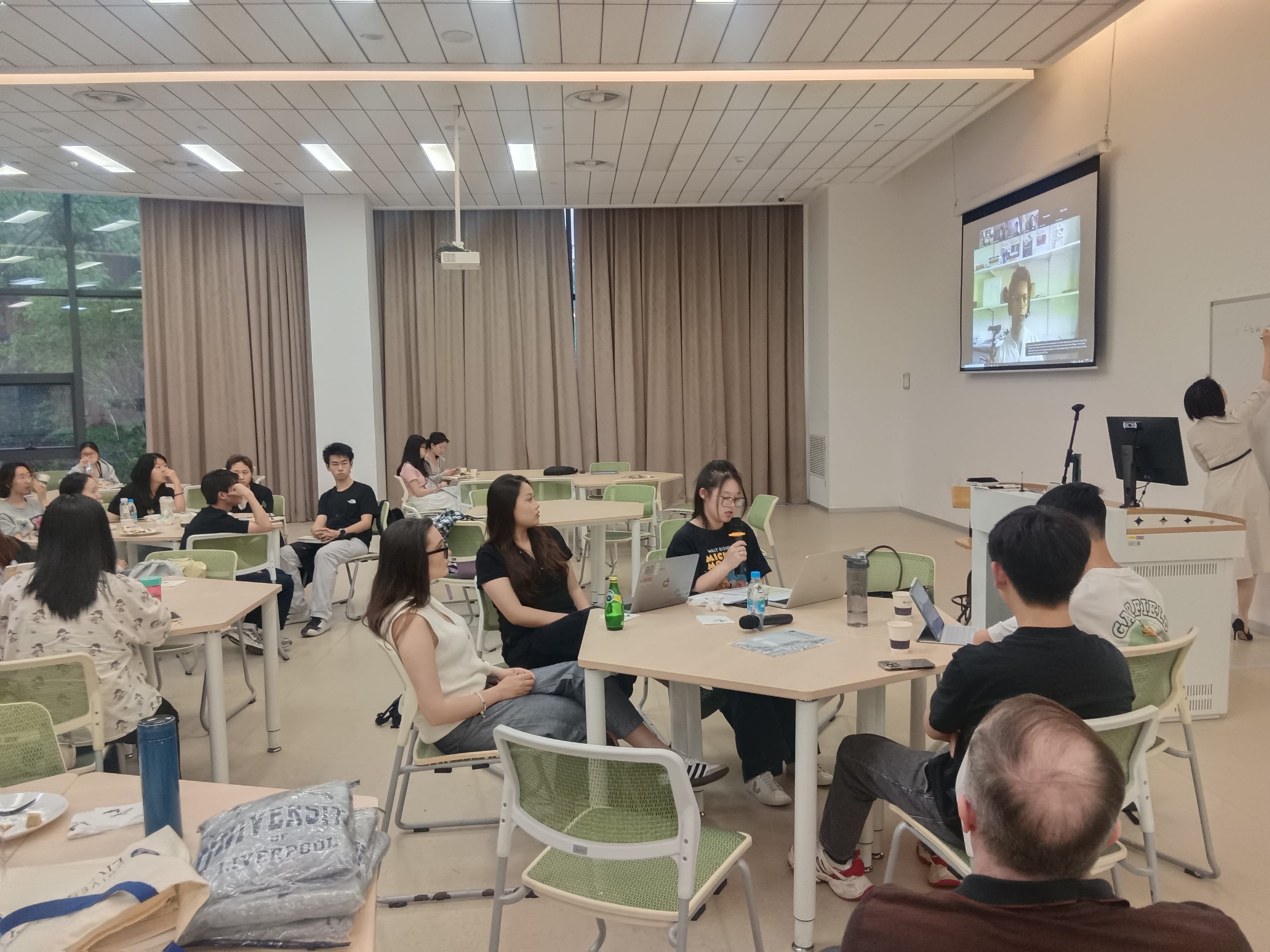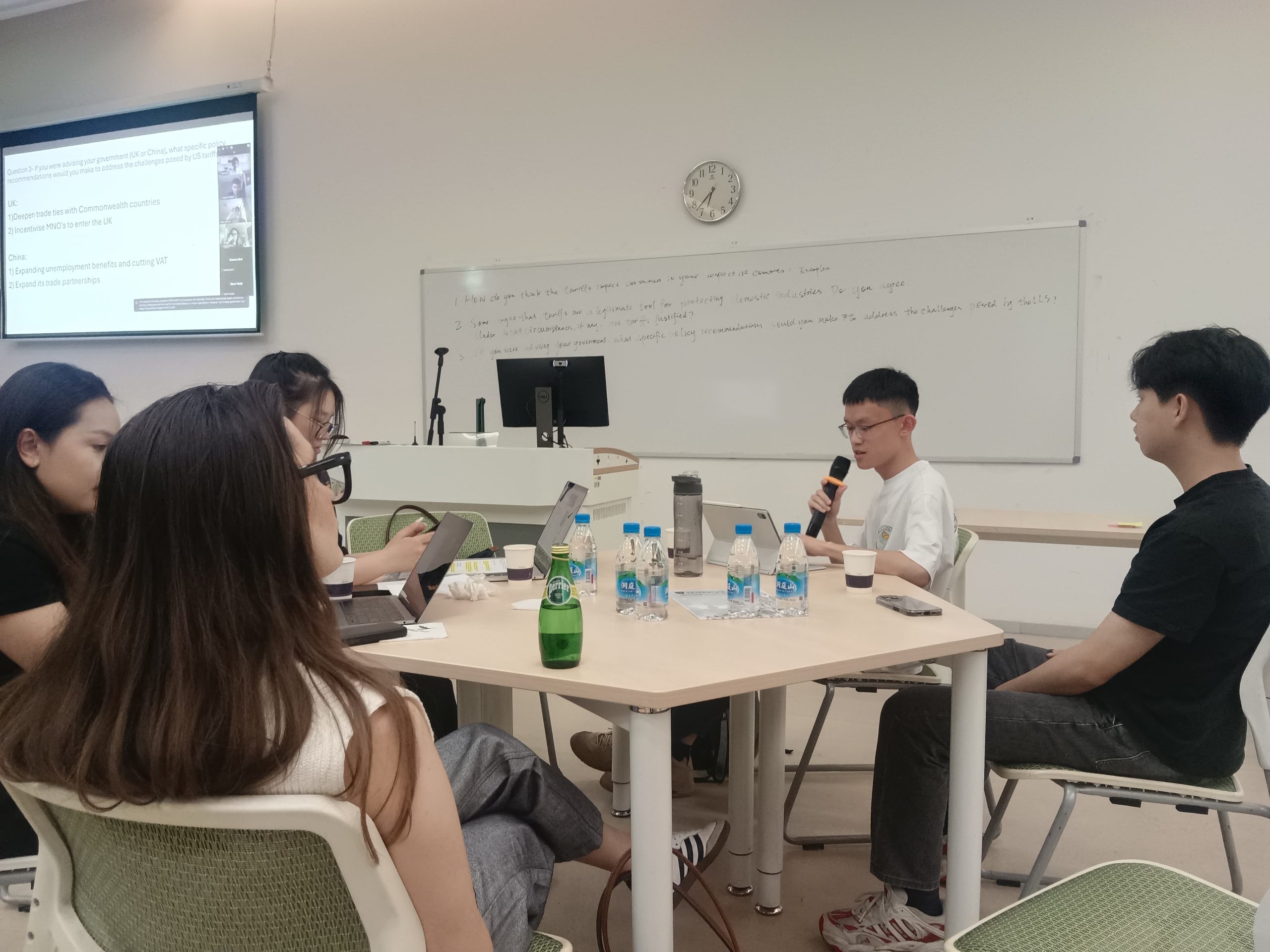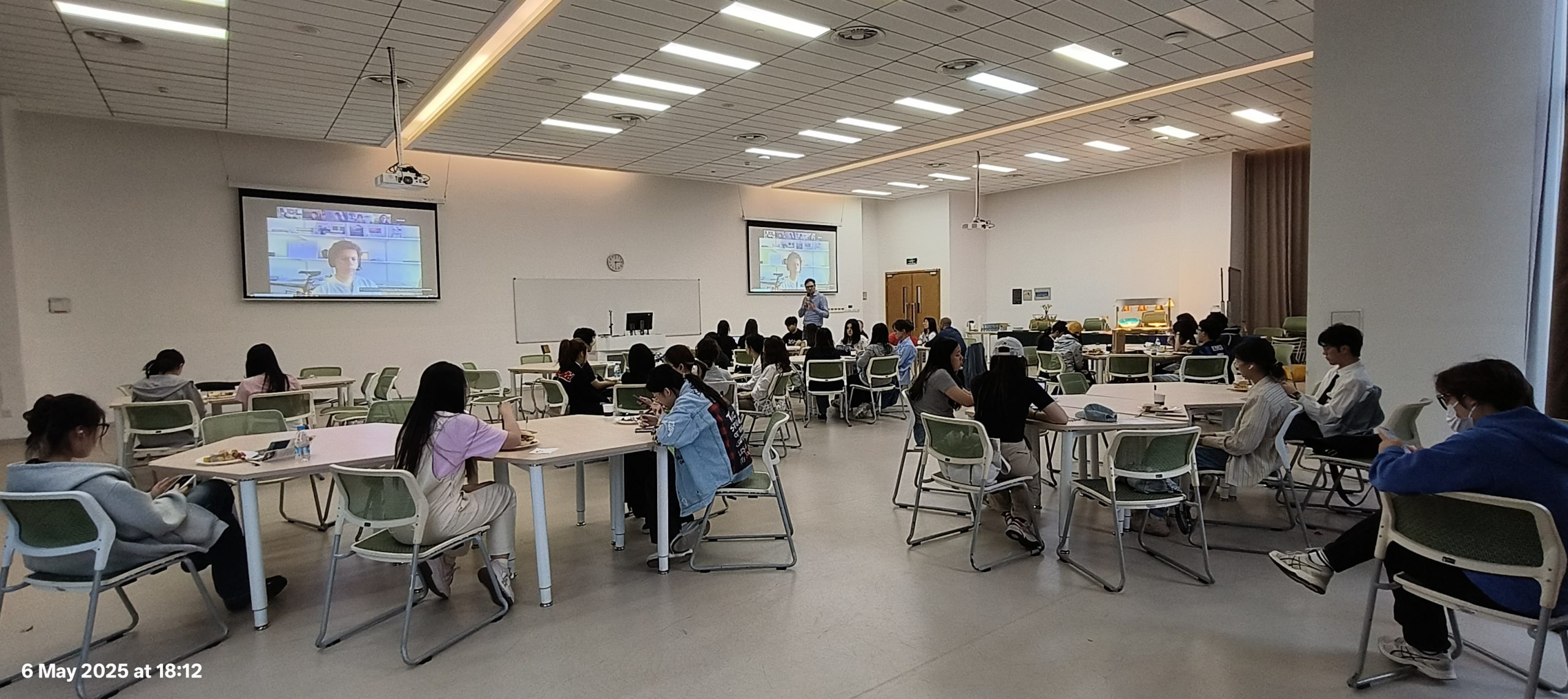08 May 2025
On May 6, 2025, XJTLU's Department of International Studies and the University of Liverpool's Department of Politics co-hosted an engaging student-led discussion at HS G26. This event, conducted in a hybrid format (online and onsite), brought together students from both institutions to explore the global implications of the U.S. tariff war through an academic lens. Welcome and opening remarks were provided by the deputy heads of both departments. Student panelists were WEN Yizhou, LIU Xuetao, and HAN Qingling from XJTLU, and Aayush Chand, Jake Whitwell, and Naz Soydemir from the University of Liverpool. The dialogue was moderated by Dr. Luca Bernardi, facilitating an enriching exchange that served to connect students from Liverpool and XJTLU with one another.

During the dialogue, participants focused on several key areas and shared valuable insights as follows:
Consumer and Business Impacts
Students from both universities presented data-driven analyses on how U.S. tariffs create ripple effects across global economies. Chinese students highlighted that tariffs on technology exports have compelled domestic manufacturers to absorb costs, resulting in an 8-12% increase in consumer prices for electronics. UK representatives pointed to significant strain on their automotive sector, where tariff-related supply chain disruptions have raised production costs by 15%. While some argued that this pressure could stimulate innovation, others illustrated through case studies how small and medium enterprises face existential threats from these market distortions. A surprising consensus emerged that inflation disproportionately affects young consumers and entry-level workers in both countries.
Tariffs' Legitimacy as Protectionist Tools: A Contested Reality
Historically, tariffs have been used to support industrial development, demonstrating sector-specific efficacy. However, contemporary evidence overwhelmingly shows their adverse macroeconomic impacts, with recent case studies confirming their ineffectiveness in achieving stated protectionist goals. This divergence suggests that while tariffs may be theoretically justifiable in limited developmental contexts, modern globalized supply chains and retaliatory dynamics fundamentally undermine their practical utility as industrial policy instruments.

Policy Solutions
Participants proposed innovative solutions, including:
- Deepening trade ties with Commonwealth countries
- Incentivizing multinational corporations to enter the UK market
- Establishing a digital platform for SMEs to collectively navigate tariff compliance
The dialogue showcased students' ability to bridge theoretical knowledge with actionable policy insights, particularly in identifying opportunities for Sino-British cooperation amidst global trade tensions. The lively Q&A session expanded to encompass related topics, during which academic staff shared differing perspectives on the relevance of capitalism to the inevitability of trade wars, thereby further enriching the discussion.

This successful academic exchange highlighted the growing sophistication of students in analyzing complex global issues. Future collaborations could incorporate practical elements, such as trade negotiation simulations, to further enhance participants' policy analysis skills. Ultimately, the event demonstrated how youth perspectives can contribute valuable insights to the international trade discourse.
The XJTLU International Relations degree equips students with critical analytical skills and global perspectives, enabling them to understand complex international systems through interdisciplinary learning and real-world policy engagement. The program offers a unique 2+2 opportunity, allowing students to spend two years at the University of Liverpool in addition to their time at XJTLU. Additionally, students in the BA in International Relations program can participate in an exchange program, spending a semester abroad at XJTLU's partner universities, which enhances their intercultural knowledge and fosters valuable international connections.

The policy dialogue was organized by Dr. Lina Gong (Programme Director, BA International Relations), Dr. Afa'anwi Che (Global Engagement Officer, Department of International Studies), and Xiaoqiong Li (Liverpool Mobility Officer, International Relations), with support from the Department of International Studies.
Contributor: Xiaoqiong Li, AFA'ANWI CHE
Photo provided by: Wenyuan Yu
08 May 2025








